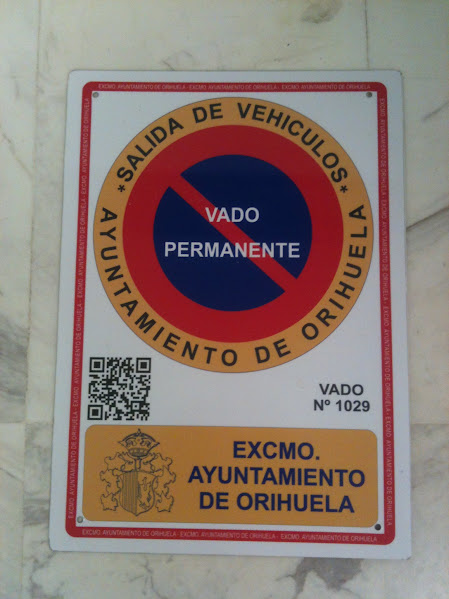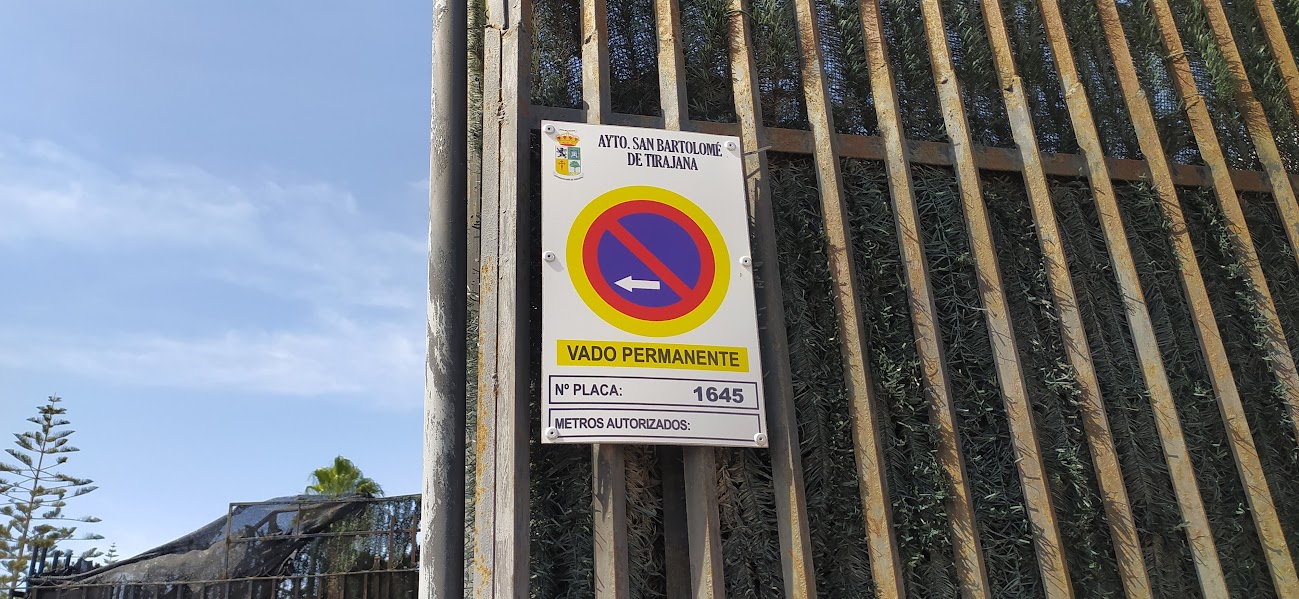Sometimes they are not visible to the naked eye, but their ‘power’ is immense, and sometimes, those who hold that power don’t realise that the restrictions they represent also apply to them, we are talking about a sign which, theoretically, prevents the blocking of access or egress, known as the “vado”.
Firstly, if you come across a vado sign, do not be tempted to park your car there to run an errand or drop the child off at school, because you risk a fine, and even being towed away.
The vado is basically a licence granted by the council of the corresponding municipality to whoever requests it and proves that he or she is the owner of the property in question (each locality has its own regulations in this regard), explains why he or she needs to secure passage through that place and pays the costs corresponding to an annual and renewable licence.
Upon a successful application, you will be issued a plate by the town hall, which is the only official form of this sign. You cannot simply print one off on your computer or buy one off the internet.
According to the General Traffic Regulations, having a vado at the access gives the right of way to a property (garage door, gate to a parking space, pedestrian crossing…). If someone parks there, the holder of that licence has the possibility of notifying the Local Police to remove the illegally parked vehicle. The Police can also do so ex officio, file the corresponding complaint or limit themselves to having the municipal tow truck act on its own.
Secondly, the bit than many of these licence holders don’t realise, is that you can’t park there yourself, even if you hold that licence yourself! Because remember: your annual fee only entitles you to drive through there, not to stay there. The other argument is that it would be very difficult for the authorities to verify in real time who owns the car that is parked illegally (and which is supposed to be in the way anyway).
The fees for having a vado depend on each municipality and must be consulted directly on the website of the same or at the citizen service points. On the other hand, the administrative sanctions for offenders are also a local responsibility, with fines ranging, in general, from 50 euro to several hundred, depending where in the country you are.


Discover more from N332.es - Driving In Spain
Subscribe to get the latest posts sent to your email.

You must be logged in to post a comment.